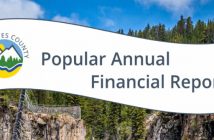In life, we all have regrets – but some are costlier than others. And when it comes to financial regrets, Americans seem quite specific about which ones are causing the most remorse. As someone with financial goals yourself, you might want to become familiar with these regrets – along with ideas for avoiding them.
Here are most common financial regrets, according to a recent survey by Bankrate.com:
• Not saving for retirement early enough – Not surprisingly, this is the biggest regret expressed in the survey. It’s unfortunate, but true, that many people are financially unprepared to retire. In fact, 52 percent of households 55 and older haven’t saved anything for retirement beyond their pensions, according to a study from the U.S. Government Accountability Office.
It’s never too soon to save for retirement – in fact, as an investor, time is your greatest ally, because the earlier you start saving and investing, the less you will typically have to put away each year to reach your goals. So, contribute as much as you can afford to your IRA and to your 401(k) or other employer-sponsored retirement plan. At the very least, put enough into your 401(k) or similar plan to earn your employer’s matching contribution, if one is offered. And whenever you get a raise, boost your contributions to your 401(k).
• Not saving enough for emergency expenses – If you don’t have an emergency fund, you might be forced to dip into your long-term investments to pay for things such as a new furnace or a major car repair. Try to keep three to six months’ worth of living expenses in a liquid, low-risk account. Keep in mind that the key benefit of your emergency fund is its accessibility. For this particular fund, you can sacrifice growth potential for the assurance that your money will be there when you need it.
• Taking on too much credit card debt – A credit card can be useful to you in many ways – if you use it wisely. But it’s easy to go overboard on the “plastic.” Try to live within your means so that you don’t have a heavy debt load hanging over your head. Every dollar you don’t spend on debt payments is a dollar you can invest for your future. Keeping a lid on your credit card usage may require you to adjust your lifestyle somewhat – but it may well be worth it in the long run.
• Not saving enough for your children’s education – It’s not easy to save for your retirement and, simultaneously, for your children’s education. But if you can afford to help your children meet the high costs of higher education, consider a tax-advantaged vehicle, such as a Section 529 plan. You retain total control of a 529 plan until withdrawals are taken, so, if one child doesn’t end up going to college, you can switch beneficiaries. Withdrawals from a 529 plan used to pay qualified higher education expenses are completely free from federal income tax, and may also be exempt from state income tax. (However, if you use money from your 529 plan for reasons other than qualified higher education expenses, you will be taxed on the earnings portion of your withdrawals, and you may also be subject to a 10 percent penalty tax.)
• Buying a bigger house than you can afford – There’s nothing wrong with wanting to live in a nice house – but you don’t want to become “house poor” by owning a home that may be bigger than you need. While building up equity in a home can be beneficial, you will probably still be better off buying a less expensive home so that you’re not constantly “strapped” for cash.
By making the right moves throughout your working years, you can help yourself avoid regrets when you might feel them the most – during your retirement.
Provided by RBC Wealth Management and Pamela J. Carty, AWM, Associate
Vice President, Financial Advisor – Private Client Group
This article is provided by RBC Wealth Management on behalf of Pamela J. Carty, a Financial Advisor at RBC Wealth Management, and may not be exclusive to this publication. The information included in this article is not intended to be used as the primary basis for making investment decisions. RBC Wealth Management does not endorse this organization or publication. Consult your investment professional for additional information and guidance.
This material is not intended to replace the advice of a qualified tax advisor, attorney, and accountant or insurance advisor. Consultation with the appropriate professional should be done before any financial commitments regarding the issues related to the situation are made.
RBC Wealth Management, a division of RBC Capital Markets, LLC, Member NYSE/FINRA/SIPC




